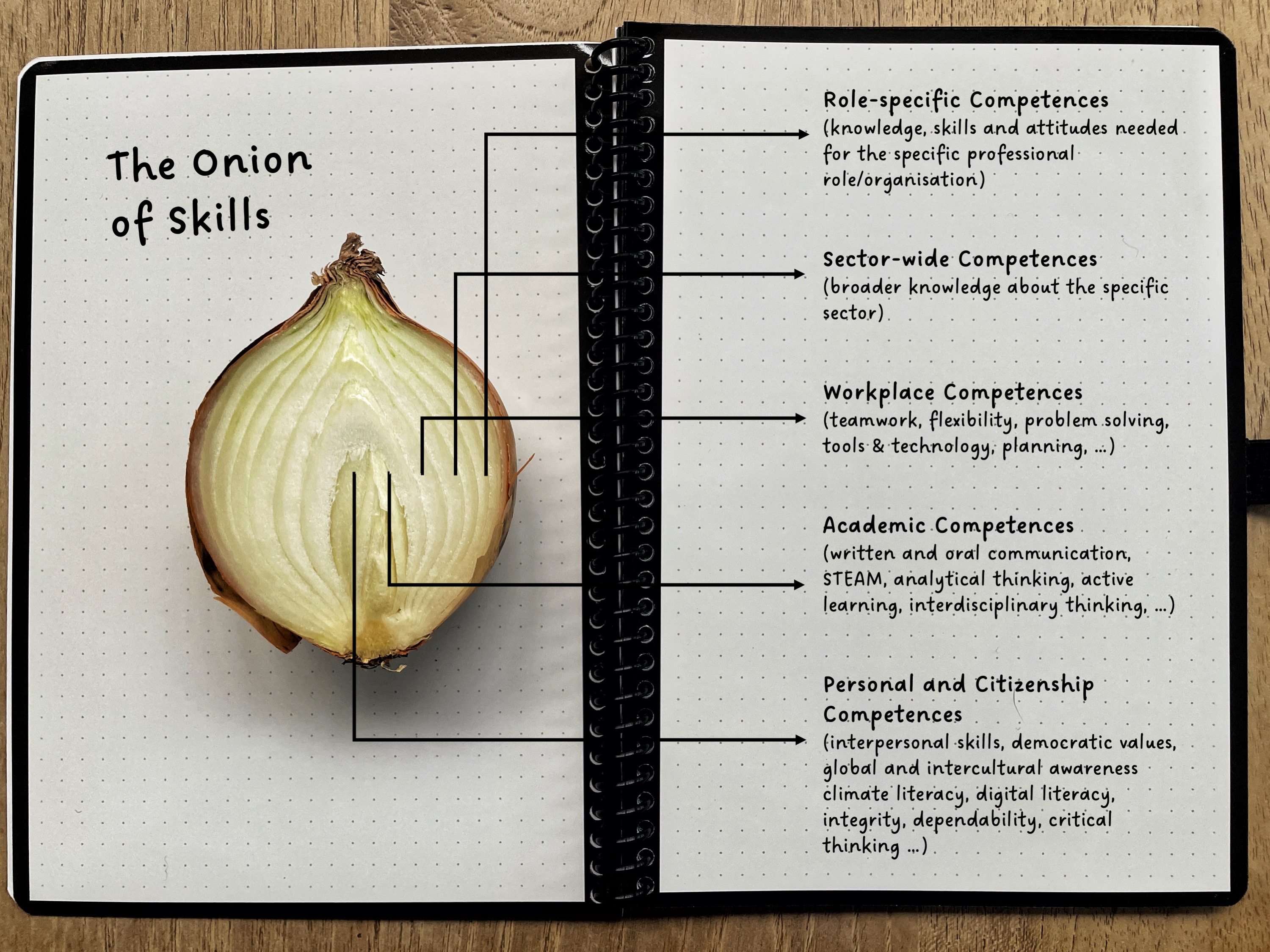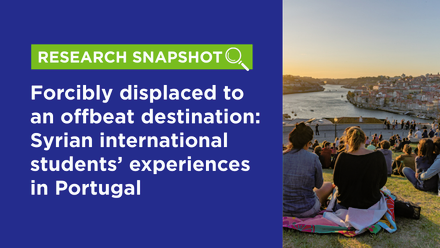The Onion of Skills

On 5 March 2025 the European Commission published its long-awaited Communication on the Union of Skills. It outlines a comprehensive strategy to ensure that everyone in Europe, no matter where they are, is empowered to build solid skills foundations and engage in lifelong upskilling and reskilling.
"To be competitive and prepared for the future, the EU needs to support and prepare its people with the skills and competences needed for success in learning, work, and life." (Communication The Union of Skills)
A workforce with strong and up-to-date skills is seen as the necessary basis for a resilient Europe, able and eager to outsmart the competition on the world stage. It is great to see the European Commission highlighting the vital importance of education in general, and higher education in particular, for the future of Europe.
The various intitiatives under the Union of Skills will support European education and training systems to provide equal opportunities for everyone, including all young people, regardless of their background and place of residence, to access education, lifelong learning, quality jobs and to navigate transitions and crises. The strategy also emphasises the importance of automatic recognition of skills and qualifications acquired in other countries and the need to recruit talent from outside the EU.
Stronger educational foundations are not only necessary as a pipeline for future employees but they also underpin EU values such as democracy, human rights, solidarity, social inclusion and diversity, helping people become more resilient to mis- and disinformation, radicalisation and recruitment into crime and empowering them to contribute to a greener, fairer, and more cohesive Europe. A stable and robust democratic society is essential for long-term competitiveness in any meaningful sense.
What the Union of Skills can learn from the humble onion
The Communication acknowledges that ‘skills’ should be understood in a broad sense, encompassing "skills, knowledge and competences for life, well beyond the skills needed for the labour market". Indeed, long-term thriving in work and life depends on a complex set of knowledge, skills, attitudes and values, multi-dimensional and multi-layered, much like an onion.

At the very core are competences related to personality and (global) citizenship. These are the sources of resilience and flexibility as well as the human capacity to project warmth and competence, which is the basis of fruitful and trustful collaborations and relationships.
Around this core are many layers: academic competences, generic professional and workplace skills, sector knowledge, and finally concrete competences related to a specific role in a specific company or organisation. The outer layers can't exist in a sustainable way without being supported by the deeper ones.
"Onions need to grow in full sun and also in a spot where they won’t get shaded by other vegetables. The more energy they can get from the sunlight, the larger their bulbs can grow. Mix aged manure or compost into the soil in the fall or early spring to improve texture. Ensure there are no rocks or debris. Soil needs to be well-draining and loose; compacted soil affects bulb development." (The Old Farmer’s Almanac)
These layers take time to grow. Higher education should not only provide fertile academic soil, but also a stimulating and supportive environment for personal growth, exploring one's own interests and strengths, and building strong human connections. This requires attention to all the different ways people learn: not only the formal curriculum, but also the informal and the hidden curriculum are important. Learning is a social process and well-rounded and healthy competences can only grow through a multitude of human interactions.
Higher education should not only provide fertile academic soil, but also a stimulating and supportive environment for personal growth, exploring one's own interests and strengths, and building strong human connections.
International and intercultural components are needed within every layer of the onion. Faced with the reality of global challenges and global competition, there is an urgent need to question all assumptions, to dare to innovate and to internationalise all curricula. Exposure to diverse contexts and cultures, engaging with real-life challenges and projects, contributing to interdisciplinary teamwork should be seen as essential components of today's higher education, for every student.
Competences (knowledge, skills, attitudes and values) are developed and nurtured in a multitude of ways, inside and outside the classroom. Students and lifelong learners are not like shopping carts to be filled at random with various items. First and foremost they are human beings whose level of competence and confidence will grow organically, layer by layer, given healthy mental nourishment and a stimulating environment.






